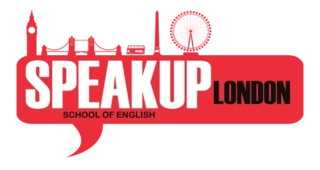If you are serious about improving your English, one of the first decisions you’ll need to make is whether to enroll in a short course or a long-term programme. Both options can be effective, but they serve different needs. This article will look at the advantages and differences to help you choose the best path for your English learning journey.
Short Courses: Quick and Focused
Short courses are typically designed to last from a few weeks to a few months. They are usually focused on a specific skill or topic, like business English, exam preparation (e.g. IELTS). These courses are perfect if you want to improve quickly in a specific area.
Advantages of Short Courses:
- Focused Learning: Short courses are great if you know exactly what you want to work on. For example, if you need to prepare for a job interview or improve your presentation skills, a short course on business English can give you targeted practice.
- Flexibility: Since they are shorter, you can fit them into your schedule more easily. At Speak Up, we offer day as well as evening classes: you can choose one that suits your availability.
- Motivation Boost: The quick progress you can make in a short course often helps to keep you motivated. Seeing improvement in a few weeks can give you the confidence to continue learning.
Who Should Choose Short Courses?
Short courses are ideal if you have limited time or a specific goal. For example, if you need to improve your writing skills quickly for an exam or a job application, a short course can provide intensive practice. They are also perfect for students who want to boost their English during holidays or while balancing work or university studies. If you don’t like fast-paced courses and prefer taking your time in learning, then consider longer term courses.
Long-Term Programmes: Slow and Steady
Long-term programmes usually last for several months to a year or more. They provide a more comprehensive approach to learning English and cover all aspects of the language, including grammar, vocabulary, speaking, listening, reading, and writing.
Advantages of Long-Term Programmes:
- In-Depth Learning: Because of the extended duration, long-term programmes allow you to build a strong foundation in all areas of English. You can focus on improving your overall fluency rather than just one specific skill.
- Consistency: Learning a language takes time, and regular, consistent practice is key. A long-term programme ensures you have the time to practise, make mistakes, and learn from them.
- Cultural Immersion: Many long-term programmes include cultural activities and real-life practice. This is especially true if you choose to study in an English-speaking country like the United Kingdom. You’ll have more opportunities to use English in everyday situations, which can help you learn faster. Speak Up offers a variety of after class social programme events led by teachers and Speak Up staff such as pub crawls, conversation clubs, museum visits and UK city visits where you get together with like-minded students and explore what British culture has to offer.
Who Should Choose Long-Term Programmes?
Long-term programmes are a great choice if you are serious about becoming fluent in English. If you have the time and resources, committing to a long-term course can give you a solid understanding of the language. They are especially beneficial for students planning to work, study, or live in the UK or another English-speaking country.
Which one is right for you?
Choosing between a short course and a long-term programme depends on your goals, time, and budget. Here are a few questions to ask yourself:
- What is your goal? If you need quick results for a specific purpose, go for a short course. If you want to become fluent, a long-term programme is better.
- How much time do you have? Short courses are great if you only have a few weeks or months, while long-term programmes require a longer commitment. What is your budget? Long-term programmes can be more expensive, but they offer more comprehensive training. Short courses can be more affordable if you are on a tight budget.
Final Thoughts
Both short courses and long-term programmes have their benefits, and there is no “one-size- fits-all” answer. It’s all about finding what works best for your learning style and goals. Remember, learning English is a journey, and every step you take brings you closer to fluency. Whether you choose a quick, focused course or a longer, more immersive experience, the most important thing is to stay committed and enjoy the process.
Author: Ebru Egen, a teacher at Speak Up London



